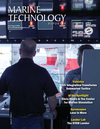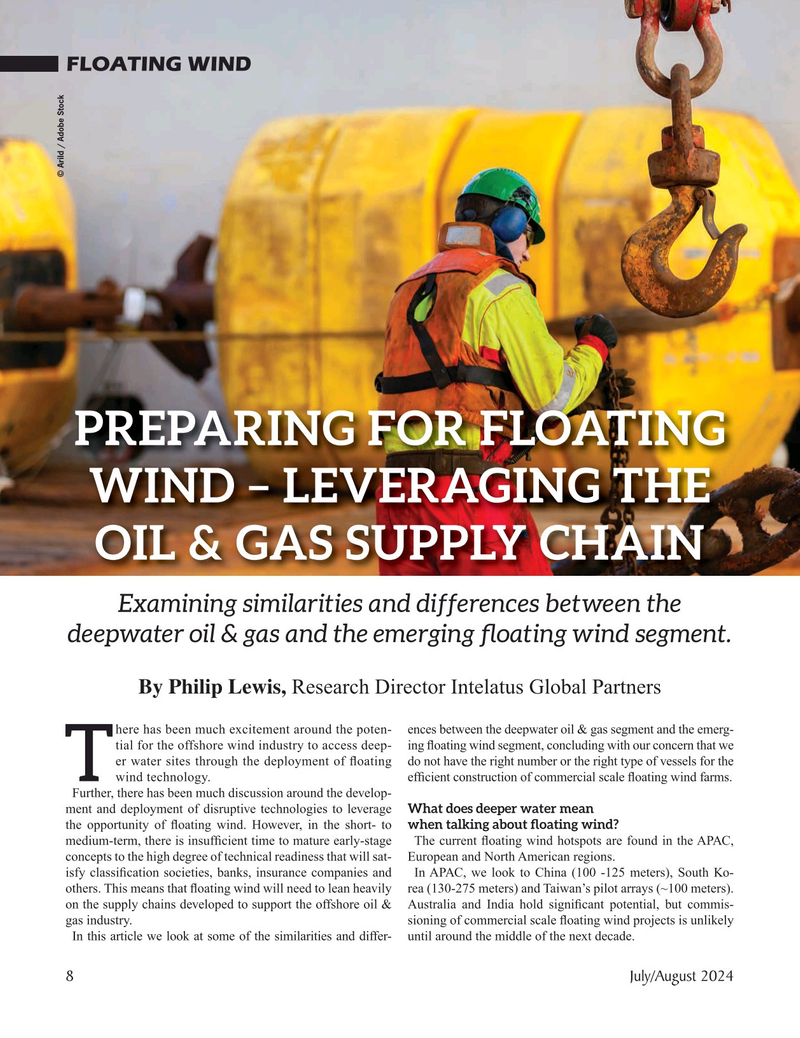
Page 8: of Marine Technology Magazine (July 2024)
Read this page in Pdf, Flash or Html5 edition of July 2024 Marine Technology Magazine
FLOATING WIND © Arild / Adobe Stock
PREPARING FOR FLOATING
WIND – LEVERAGING THE
OIL & GAS SUPPLY CHAIN
Examining similarities and differences between the deepwater oil & gas and the emerging ? oating wind segment.
By Philip Lewis, Research Director Intelatus Global Partners here has been much excitement around the poten- ences between the deepwater oil & gas segment and the emerg- tial for the offshore wind industry to access deep- ing ? oating wind segment, concluding with our concern that we er water sites through the deployment of ? oating do not have the right number or the right type of vessels for the wind technology. ef? cient construction of commercial scale ? oating wind farms.
T
Further, there has been much discussion around the develop- ment and deployment of disruptive technologies to leverage What does deeper water mean the opportunity of ? oating wind. However, in the short- to when talking about ? oating wind?
medium-term, there is insuf? cient time to mature early-stage The current ? oating wind hotspots are found in the APAC, concepts to the high degree of technical readiness that will sat- European and North American regions.
isfy classi? cation societies, banks, insurance companies and In APAC, we look to China (100 -125 meters), South Ko- others. This means that ? oating wind will need to lean heavily rea (130-275 meters) and Taiwan’s pilot arrays (~100 meters). on the supply chains developed to support the offshore oil & Australia and India hold signi? cant potential, but commis- gas industry. sioning of commercial scale ? oating wind projects is unlikely
In this article we look at some of the similarities and differ- until around the middle of the next decade.
8 July/August 2024
MTR #5 (1-17).indd 8 7/23/2024 12:51:32 PM

 7
7

 9
9
